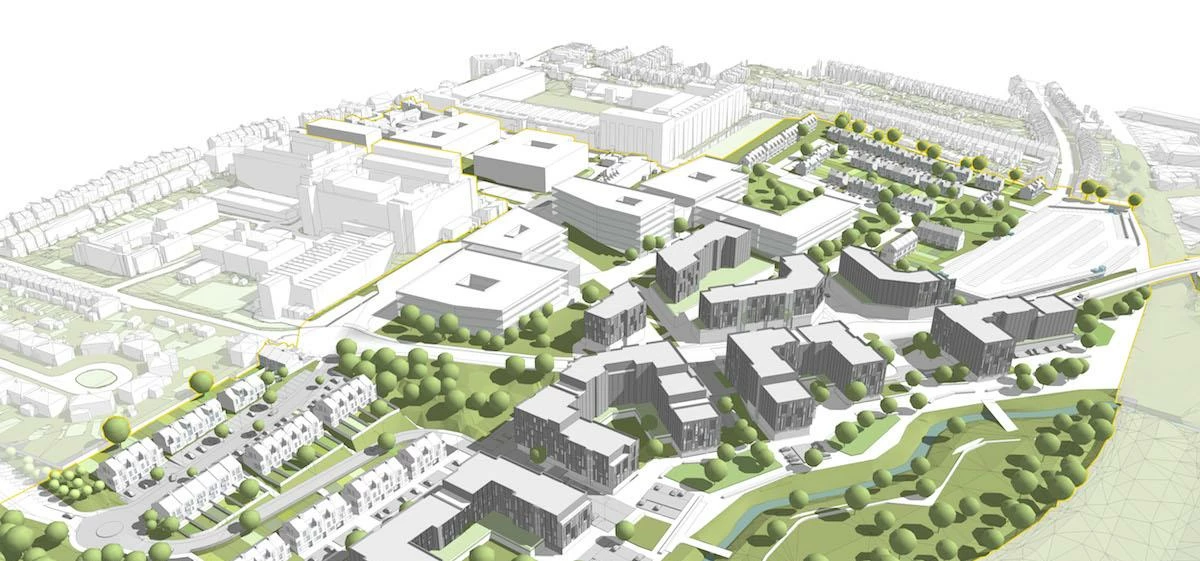
ESG lands £250k contamination testing contract with Watford Health Campus
ESG, a provider of testing, inspection and compliance services, is serving as a contaminated land consultant on the Watford Health Campus development scheme.
Worth around £250k, the contract was awarded by the project’s main contractor, VolkerFitzpatrick, and saw ESG set up a mobile chemical analysis and materials testing facility on the site.
As part of its services, ESG tested the land marked for a new road, advising VolkerFitzpatrick on the reuse potential of excavated soils.
The land was previously occupied by railway lines, power stations, a sewage works and other industrial facilities.
The operations director of infrastructure services at ESG, Paul Tilley, said: “The development of brownfield sites is an excellent opportunity within the construction and infrastructure sectors, but the likely presence of contaminated soils poses a significant challenge that ESG is well placed to meet.
“Former industrial sites are often affected by hazardous chemicals which must be appropriately treated or disposed of before construction work can begin.”
He added “ESG understands the challenges faced by developers and contractors working on brownfield sites, and works to minimise the cost impact to projects, ensuring that as much contaminated soil can be cleaned and reused as possible and that environmental risks are effectively managed.”
Once complete, the Watford Health Campus development will transform the area surrounding Watford Hospital with a new road, commercial facilities and 750 homes. The scheme is estimated to be creating as many as 1,300 jobs over the next 20 years.
Tenniel Souter, Remediation agent, VolkerFitzpatrick said: “An initial survey of the Watford Health Campus site revealed the potential for high levels of contamination in soils that would not be suitable for reuse and therefore would require specialist treatment and disposal.
By carrying out further detailed risk assessments and using advanced mapping and 3D visualisation of the precise areas of contamination, ESG were able to provide new criteria for soil reuse. This in turn increased the potential for savings both in terms of time and cost.
Tenniel continued: “Furthermore, ESG’s ability to set up mobile labs on site means that any excavated material suspected to contain hazardous substances can be dealt with quickly and effectively, which helped keep the project on schedule.”
Looking to promote your product/service to SME businesses in your region? Find out how Bdaily can help →
Enjoy the read? Get Bdaily delivered.
Sign up to receive our popular morning London email for free.








 Putting in the groundwork to boost skills
Putting in the groundwork to boost skills
 £100,000 milestone drives forward STEM work
£100,000 milestone drives forward STEM work
 Restoring confidence for the economic road ahead
Restoring confidence for the economic road ahead
 Ready to scale? Buy-and-build offers opportunity
Ready to scale? Buy-and-build offers opportunity
 When will our regional economy grow?
When will our regional economy grow?
 Creating a thriving North East construction sector
Creating a thriving North East construction sector
 Why investors are still backing the North East
Why investors are still backing the North East
 Time to stop risking Britain’s family businesses
Time to stop risking Britain’s family businesses
 A year of growth, collaboration and impact
A year of growth, collaboration and impact
 2000 reasons for North East business positivity
2000 reasons for North East business positivity
 How to make your growth strategy deliver in 2026
How to make your growth strategy deliver in 2026
 Powering a new wave of regional screen indies
Powering a new wave of regional screen indies